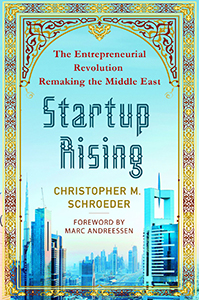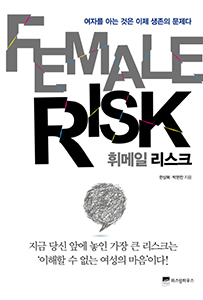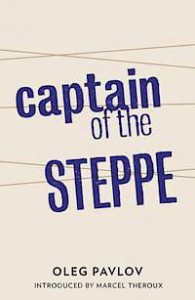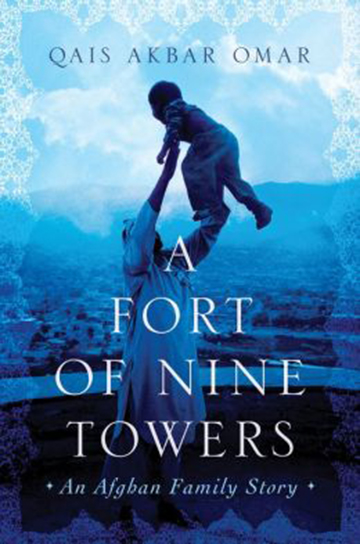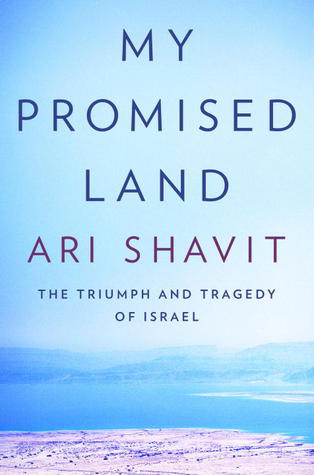
[Books] Israel, living on the edge
[BOOKS] My Promised Land
The Triumph and Tragedy of Israel
By Ari Shavit | Spiegel & Grau | 2013
Winner of the Natan Book Award, My Promised Land, by esteemed Israeli journalist Ari Shavit presents an honest, balanced and comprehensive view of Israel. Shavit uses the past to shed new light on the present situation and begins by illuminating pivotal points in the Zionist movement in the last century. He takes a wide angle while using a diverse range of resources such as interviews, personal experience, historical documents, private diaries, etc.
Shavit examines Israel’s complexities and contradictions. He looks at the duality of “existential fear” and “moral outrage.” The Israeli people exist in fear due to threatening neighbors, especially Iran, which could easily attack and destroy them. On the other hand, Shavit is morally outraged at Israel’s occupation policy and of its wrongdoing of expelling tens of thousands of Palestinians from their homes in the Arab City of Lydda in 1948. He describes Israel’s original sin as having “erased Palestine from the face of the earth.” Yet, as Israel’s existence is a result of this occupation, he cannot deny that his own existence depended on this incident. He shares, “They did the filthy work that enable my people, myself, my daughter and sons to live.”
Unlike other books about Israel and Palestine, Shavit gives an honest appraisal of injustice and makes sure to stay unbiased. His book both praises and blames as he observes and reflects on the history of Israel. Shavit is undeniably a patriot with strong love for his country, but does not let this love blind him. He expresses his solidarity and criticism simultaneously and thus displays a high degree of moral complication. Shavit does not reject Zionism, but rather elucidates its true essence. He condemns the perpetrators of the crime, but not the war for survival. He praises Jews for their achievements such as the determined founders of the Ein Harod Kibbutz in 1921.
Shavit also covers other aspects of Israel in his book such as its wars, nuclear program, culture, religious zealots, intellectuals, club scenes and its shifting demographics. He is worried about the future of Israel, as it has recently been experiencing many internal revolts.
When looking at the Israeli-Palestinian peace process, Shavit explains how Israel is politically and morally doomed if it does not retreat from the West Bank, but if it does retreat, its security will be endangered by its neighboring countries. He is not very optimistic, but rather skeptical in the prospects of peace and about how long Israel will survive in its current situation. He concludes that the “intensity of life on the edge” is what Israel has to offer.
Japan 1941
Countdown to Infamy
By Eri Hotta | Knopf | 2013
In this book, Eri Hotta reexamines the attack on Pearl Harbor from a Japanese perspective by looking at materials generally overlooked by both the West and Japan. Hotta seeks why the leaders of Japan would put the nation and citizens in so much unnecessary danger. Hotta reveals the great division among the leaders regarding the decision to attack until the final hour. With a strong desire to save face, Japan finally entered the war not only out of bellicosity, but also due to incompetency and a lack of political will. This groundbreaking history will revolutionize how we perceive World War II.
Startup Rising
The Entrepreneurial Revolution Remaking the Middle East
By Christopher M. Schroeder | Palgrave Macmillan | 2013
In the shadows of the Arab Spring, which has disappointingly brought little political change in the Middle East, emerging market investor Christopher M. Schroeder brings light to a more hopeful agent of change: the entrepreneurship revolution. Schroeder’s initial skeptical view concerning future investing in the Arab world was transformed through his travels and encounters with many talented and successful entrepreneurs and observations of many large tech companies investing despite the environment’s uncertainty. Schroeder believes this new revolution may lead the Middle East to be the new center of progress and innovation.
Soul of a Tiger
A Miraculous True Story of a Family Who Survived the Cambodian Genocide
By Sreyreath Kuy | Motivational Press, Inc. | 2013
Based on her own story, Sreyreath Kuy writes of the miraculous, inspirational story of a courageous Cambodian woman, Rachana, and her family. Rachana, her husband, two young daughters and mother go undercover for more than four years. They survive one of the most horrendous genocides of mankind, where the Khmer Rouge targeted and killed most of the elite class, especially those working for the government, schools, military, etc. Her journey to freedom is one filled with sacrifice, love, and bravery as she is forced to make countless life and death decisions.
Female Risk
Knowing women is a matter of survival
By Han Sang-bok and Park Hyeon-chan | Wisdomhouse | 2013
In Female Risk, two bestselling authors Han Sang-bok and Park Hyeon-chan give an in-depth report about “women’s hand moving the market.” They use a wide range of data to explain the era of women making 80% of purchasing decisions, how women are changing our world and how to read women’s minds. They also analyze seven keywords about women’s motives that are influencing the social system. They are communication, womanomics, competition, playing with dolls, love, maternal instinct and competence.
Getting Away with Murder
Benazir Bhutto’s Assassination and the Politics of Pakistan
By Heraldo Muñoz | W. W. Norton & Company | 2013
Former Prime Minister Benazir Bhutto, head of a prominent political family of similar importance to the Kennedys in the United States or Gandhis in India, was killed by a suicide bomber on December 27, 2007. In Getting Away with Murder, Muñoz goes into unprecedented detail to unravel the mystery of Bhutto’s death. Until this day, many different theories and suspects surround her death. Muñoz also explains the unexpected role the U.S. played in the tragic sequence of events as well as Pakistan-U.S. relations and the impact of Bhutto’s assassination on world politics.
Captain of the Steppe
By Oleg Pavlov, Translated by Ian Appleby | And Other Stories | 2013
Captain Khabarov waits out the rest of his service at a camp in the desolate steppe, where bundles of last year’s newspapers and rotting rations are delivered. The soldiers feel cheated and overlooked as they are stationed in this unfathomably cold, overcrowded, decaying camp with the mission to guard exiled prisoners. One day, Captain Khabarov decides to grow potatoes to feed the half-starving men, but his goodwill is interpreted as an act of defiance, as he was not ordered to do so. In Captain of the Steppe, Oleg Pavlov presents a chilling, humorous and convincing account of the last years of the Soviet Empire.




